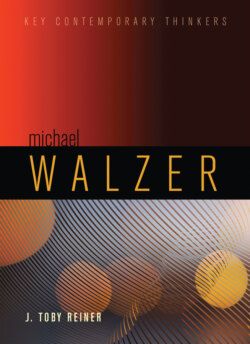Читать книгу Michael Walzer - J. Toby Reiner - Страница 17
Notes
Оглавление1 Interview with author, April 19, 2010. 2 In particular, he has become more willing to countenance military humanitarian intervention than he was in 1977 (Walzer 2018: 53–76). 3 Orend argues that Walzer ought to have a theory of the justice of post-war settlements and reconstruction (jus post bellum) and reconstructs one along the lines he thinks Walzer ought to have taken (Orend 2000: 135–52, Orend 2013: 185–248; see also Patterson 2012a, 2012b). I postpone consideration of this issue until Chapter 6 so as to link it to Walzer’s skepticism about the cosmopolitan approach that underlies the project of developing principles of jus post bellum. 4 Most importantly, 2004b, but see also Walzer 1980a, 1988b, 1988c, 1992a, 2002b, 2006a, 2006b, and the forewords to all the subsequent editions of Wars. 5 The sixth proposition suggests an implicit theory of jus post bellum, which Orend calls the “retributive model” and criticizes (Orend 2013: 201–6), advocating instead “rehabilitation” designed to make aggressor states into law-abiding, rights-respecting members of international society (215–40). 6 According to Walzer, it was the Six-Day War that converted Dissentniks such as Irving Howe to Zionism. Interview with author, November 21, 2017.
